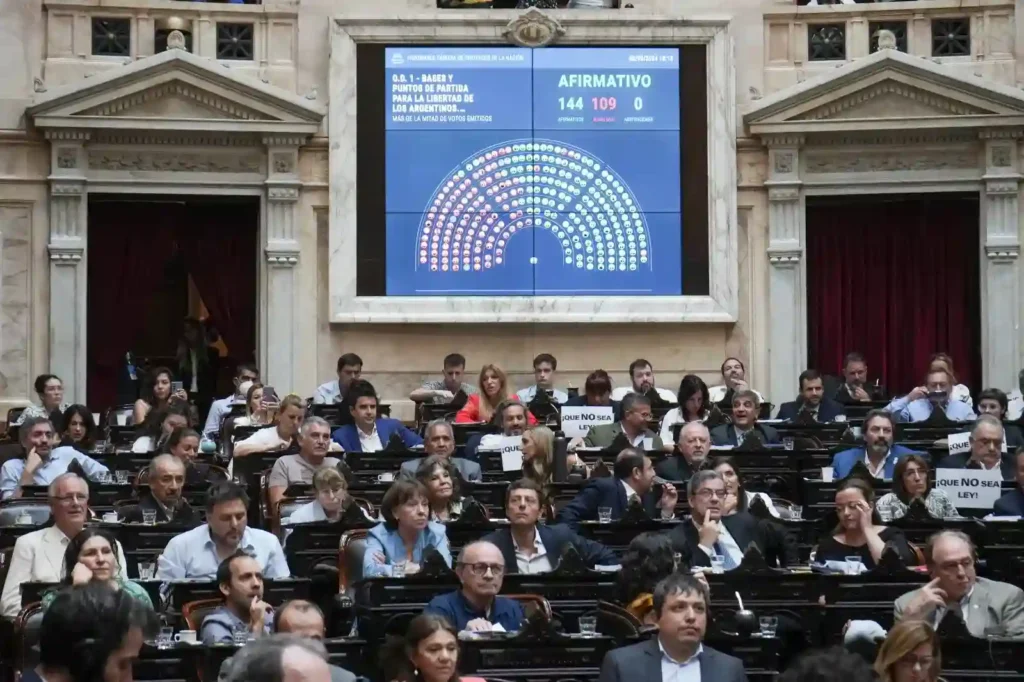The debate is far from settled, as now follows an article by article votation. After that, the bill will need to be discussed again on the Senatorial Chamber, where a tough opposition is expected.

The “Omnibus” bill secured general approval in the Chamber of Deputies, with 144 votes in favor and 109 against. However, the atmosphere remained tense as the government’s statement from the Casa Rosada emphasized that the time for debate had concluded.
The law, which underwent significant alterations, gained support primarily from libertarian votes, including those from the PRO, UCR, We Make the Federal Coalition, and Federal Innovation.
Despite this initial success, Javier Milei and his supporters could not declare victory outright. The debate on specific articles is set to resume on Tuesday, raising concerns that key elements such as privatizations, debt, delegated powers, and the PAIS tax may face rejection if greater consensus is not achieved. The government continues negotiations with provinces and dialogue blocs to address lingering concerns.
The Casa Rosada’s statement underscored the government’s frustration with provinces and dialogue blocs, which persistently condition their support despite prior amendments to the legislation. The government urged representatives to choose between supporting the freedom of Argentines or upholding the privileges of a perceived corporate republic.
Radicalism acknowledged that the main obstacle remains the sharing of the PAIS tax. Deputies from Córdoba Federal, aligned with Governor Martín Llaryora, threatened to introduce changes forcefully to favor tax sharing. While their number is limited, other dialogue blocks indicated potential support for such a motion, as it would benefit provinces at the expense of the national government.
The PAIS tax (tax over foreign currency purchase operations to pay for purchases abroad) has been a contentious issue, with governors claiming a preliminary agreement, which the government denies. The tax’s inclusion in the general vote excludes all articles related to the fiscal package, leaving room for potential introduction during the particular vote.
Córdoba deputies’ votes are crucial for the government, particularly on emergencies and delegated powers. Negotiations revealed their willingness to approve only three emergencies: fiscal, administrative, and security, aligning with Governor Llaryora’s priorities.
Progress on privatizations is evident with a revised draft, reducing the list of sellable companies from 39 to 30. However, disagreements persist, notably regarding Banco Nación, Nucleoeléctrica Argentina, and ARSAT, considered strategic and facing opposition resistance. The government’s promise to engage in weekend dialogues aims to bridge gaps with governors and the opposition.
Block presidents presented differing perspectives during the debate, emphasizing their negotiations. Tensions between Peronism and La Libertad Avanza are apparent, but the government’s concern lies with the dialogue blocks, whose legislative leaders expressed frustration over the lack of negotiation expertise.
The coming days are crucial for the ruling party to secure quorum and address outstanding issues like the PAIS Tax, emergencies, privatizations, and delegated powers. The goal of many deputies is to shape the law into a form different from the one initially passed in the Chamber of Deputies.







